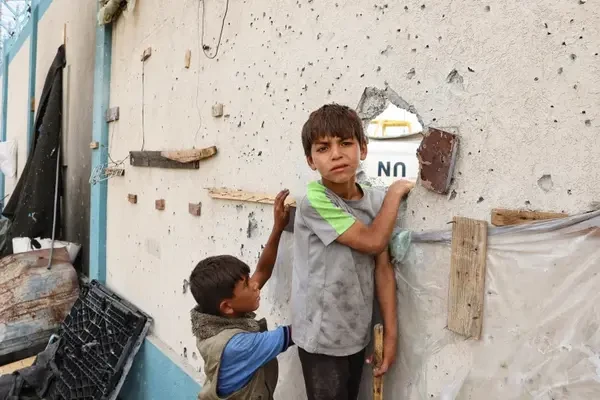Iran’s Unyielding Stance Against Israeli Aggression: A Complex Geopolitical Struggle
In the eyes of many, the Islamic Republic remains the last bastion in the Muslim world against unchecked Israeli aggression
Loading...

Peace proposals, framed by the US president as Israeli, have divided as much as they have unified.
US President Joe Biden has announced what he claimed was an Israeli peace plan to bring about a ceasefire in Gaza.
According to journalists invited to a background briefing on Friday, the new plan is almost indistinguishable from previous plans agreed by Hamas.
If successful, it would usher in a ceasefire in a conflict that has killed more than 36,000 Palestinians, the majority of them women and children, and enraged communities worldwide.
What does the plan propose?
The plan envisages three stages:
1. A six-week ceasefire during which the Israeli army will withdraw from the populated areas of Gaza.
2. An exchange of Israeli captives and Palestinian prisoners, as well as a surge of humanitarian aid to relieve those in the Gaza Strip at risk of famine and more than 82,000 wounded in Israeli attacks.
3. A permanent ceasefire to facilitate the reconstruction of the enclave, including 60 percent of clinics, schools, universities, and religious buildings damaged or destroyed by Israeli forces.
Who likes it?
Hamas stated on Friday that it views the proposals “positively” without going into further detail. Support for the plan has come from some Israeli politicians, families of captives, and the international community.
Benny Gantz, Prime Minister Benjamin Netanyahu’s principal rival, spoke positively of the proposal and asked his colleagues in the war cabinet to discuss the next steps. Opposition leader Yair Lapid also promised to support the plan if ultranationalist and far-right parties withdraw support. UN Secretary-General Antonio Guterres and many of Israel’s allies, including the UK and Germany, also endorsed the plan.
Who doesn’t?
Much of the opposition comes from within the Israeli cabinet. Netanyahu said any initiative that did not include the “elimination” of Hamas’s capacity to govern and make war was a “non-starter.” Ultranationalist and extreme right members of Netanyahu’s coalition threatened to withdraw from the government if the proposals were accepted.
Will it be accepted then?
That is not clear. Families of captives and parts of Israel’s political class are putting pressure on the government to accept the deal, but pressures to reject the deal are also strong. Hamas’s spokesperson in Lebanon said they have yet to receive a written proposal from the US and would wait to hear from its leadership inside Gaza before making a decision.
Where did the proposals come from?
The origins of the plan remain unclear. Biden framed the announcement as an Israeli initiative, but few within the Israeli government appeared to be aware of it before Friday. It is similar to a previous Israeli proposal agreed by Hamas in April, suggesting the US is signaling to Israel that the administration wants to halt the conflict.
Does it matter if the plan doesn’t get through?
The humanitarian situation within Gaza remains dire. Over a million people have fled Rafah city as Israel continues its deadly assault. Healthcare provision is struggling to cope with shortages of fuel and other vital supplies, the UN said. Negotiations to end the war have stalled, but Israeli and US negotiators will reconvene in Cairo on Sunday to discuss reopening the Rafah crossing and potentially resolve one of the leading causes of the humanitarian crisis in southern Gaza.
BMM - MBA
In the eyes of many, the Islamic Republic remains the last bastion in the Muslim world against unchecked Israeli aggression
Analysts say US push for Gaza post-war phase is ‘unrealistic’ as Israel vows to continue fighting in besieged territory.
And recent Iraqi history can tell us how.
